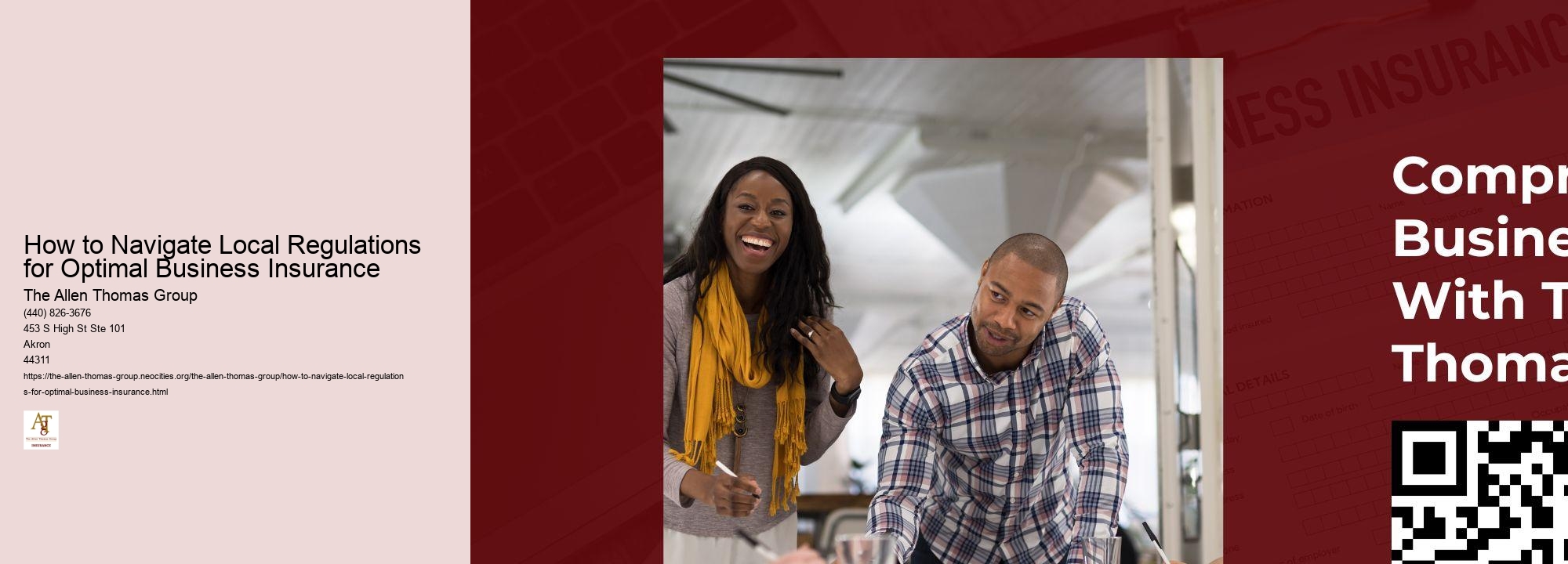
How to Navigate Local Regulations for Optimal Business Insurance
The Allen Thomas Group (insurance company)
Navigating local regulations for optimal business insurance can often seem like a daunting task for entrepreneurs and business owners. The process entails understanding the intricate web of laws, codes, and requirements that vary from one jurisdiction to another. The Allen Thomas Group Insurance Agents . However, by identifying and accessing local regulatory resources effectively, businesses can ensure compliance while benefiting from the best possible insurance coverage tailored to their specific needs.
Firstly, it is crucial to recognize that local regulations are in place to protect both businesses and consumers. These rules govern everything from zoning laws to safety standards and environmental guidelines. Insurance requirements fall within this scope as well; they are designed to safeguard businesses against potential liabilities that could arise during operations.
The journey towards navigating these regulations begins with identifying the appropriate local government bodies responsible for overseeing business activities in your area. This could range from city or municipal councils to county boards or state agencies. Each of these entities may have different mandates and sets of rules regarding business operations and insurance necessities.
Once you have pinpointed the relevant authorities, accessing their resources becomes key. Most governmental bodies maintain comprehensive websites where they provide detailed information on regulations applicable to businesses within their jurisdiction. This typically includes guides on how to comply with local laws, checklists for new businesses, permit applications, and details about mandatory insurance coverages such as workers' compensation or professional liability.
Moreover, attending workshops or informational sessions hosted by local chambers of commerce or small business development centers can prove invaluable. These organizations often collaborate with regulatory agencies to bring clarity on compliance issues directly to business owners through seminars or one-on-one counseling sessions.
Another strategy is consulting with industry associations pertinent to your field of business. They usually offer a wealth of knowledge regarding industry-specific risks and the corresponding insurance solutions recommended at a local level. Such associations also advocate on behalf of their members when changes in regulation are being considered that might impact the sector's operational environment.
Malpractice insurance Legal assistance should not be underestimated either; experienced attorneys who specialize in commercial law can provide personalized guidance aligned with your company's unique circumstances—ensuring that all bases are covered when it comes to meeting legal obligations under local statutes.
It is worth noting that technology has become an ally in this process too. Many regions now offer online portals where businesses can manage licenses, permits, inspections schedules, and even some aspects of their insurance policies digitally—streamlining what was once a paperwork-heavy undertaking.
In conclusion, while navigating local regulations for optimal business insurance may initially appear complex, methodically identifying and accessing available regulatory resources simplifies the task considerably. By engaging actively with government entities, leveraging help from specialized organizations and professionals, staying informed through educational opportunities offered locally—and embracing technological tools—a company can achieve a robust position not only legally compliant but also securely insured against risks inherent in its area of operation.
What General Liability Insurance Covers for Small Business Owners

